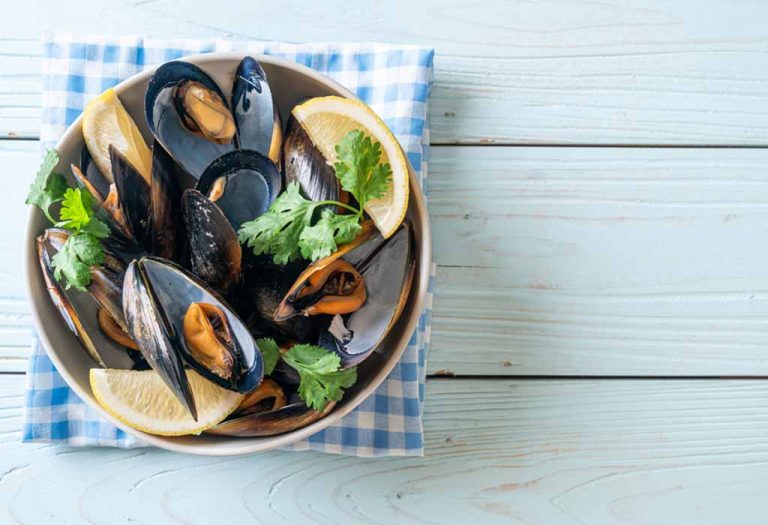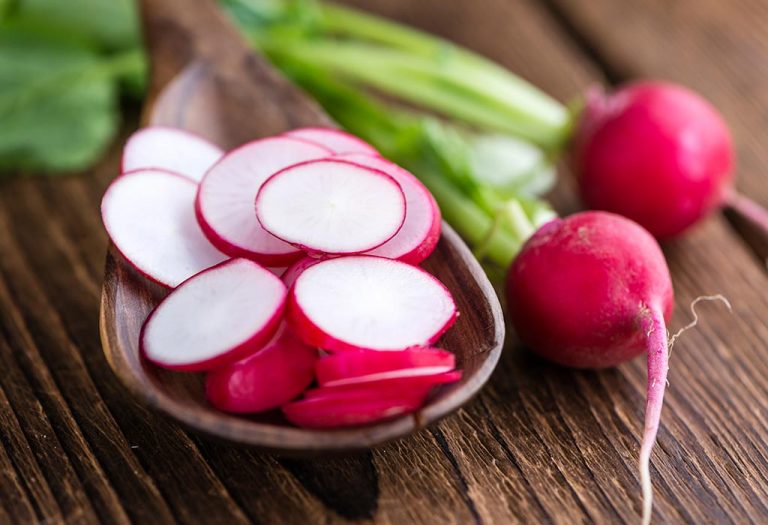Coconut Water During Pregnancy – Benefits and Precautions

Coconuts grow in abundance in tropical countries, and coconut water has been consumed for centuries due to its known medicinal properties. It is often recommended to the sick and the able; the drink has a natural, soothing effect. It is also beneficial for pregnant women, as it helps regulate the digestive tract and relieves symptoms, such as morning sickness and constipation. Pregnancy warrants a switch to a healthy diet, which also means leaving behind artificially packed drinks that have high sugar content. Coconut water in pregnancy can be a great alternative drink that is both nutritious and flavourful. However, it is essential to be aware of potential side effects and take necessary precautions to ensure safe consumption. Keep reading to learn more about how the consumption of coconut drink during pregnancy can support a healthy pregnancy.
Can Pregnant Women Drink Coconut Water?
Let’s address the most frequently asked question: ‘Is coconut water safe during pregnancy?’ For those drinking it daily or alternately, it’s fine, but when it comes to pregnancy precautions, every food item must be thoroughly verified. Exhaustion during pregnancy is a common problem, draining the woman’s energy levels over time. To overcome this feeling, it is recommended that pregnant women drink a glass of coconut juice for pregnancy every day. Coconut water is full of essential minerals that can be beneficial to pregnant women.
The best time to drink coconut water during pregnancy is in the morning, as the nutrients and electrolytes it contains are easily absorbed on an empty stomach. It is rich in potassium, sodium, phosphorus, calcium, dietary fibre, moderate sugar, vitamins, and protein (1). It has been found to help counter dehydration caused by morning sickness during pregnancy. Due to its high fibre content, a glass of coconut water in the mornings can help ease constipation.
During the latter half of pregnancy, it can also be beneficial in managing blood pressure, as it is rich in potassium. However, since the drink is high in calories, women who are trying to gain weight should be cautious. As it is also considered to be a diuretic, pregnant women might need to make more frequent visits to the restroom. Women taking medication for blood pressure should exercise caution when consuming coconut water, as the potassium levels in the drink can lower blood pressure.
Nutritional Value of Coconut Water
Since time immemorial, positive correlations have been drawn between coconut water and health. It is not only a balanced nutritional drink but is also very refreshing. Working women who have little time to pay attention to their needs during pregnancy can compensate by drinking a glass of fresh coconut water every day, as the nutritional value of coconut eliminates tiredness and lethargy.
| Nutritional Value of Coconut Water (100 grams) | |
| Water | 95 g |
| Calories | 19 kcal |
| Sugar | 2.61 g |
| Potassium | 250 mg |
| Sodium | 105 mg |
| Fat | 0.2 g |
| Protein | 0.72 g |
| Fibre | 1.1 g |
| Calcium | 24 mg |
| Magnesium | 25 mg |
Source: USDA (2)
It is a great natural drink rich in vitamins, electrolytes, and minerals. Some soothing coconut water can effectively alleviate thirst. Researchers have established that coconut water is an effective rehydration aid. This, however, does not imply that other healthy foods should be restricted. A balance between nutrients and nourishment should always be kept in mind.
Health Benefits of Coconut Water for Pregnant Women
Coconut water is packed with nutrients that can benefit pregnant women. Here is a list of the key health benefits of coconut water for expectant mothers.
- It increases the expectant mother’s immunity levels and protects her and the baby, as it is rich in vital vitamins and antioxidants.
- It helps relieve constipation due to its high fibre content (3).
- As a natural diuretic, it balances the body’s uric acid levels, flushes out toxins, and clears the urinary tract (4).
- The presence of magnesium, potassium, and other minerals helps increase urine output, which is vital during pregnancy and reduces the risk of kidney stone formation.
- It also provides the necessary electrolytes to prevent dehydration caused by diarrhoea and vomiting, the two symptoms of morning sickness.
- The presence of potassium and phosphorus enhances energy levels.
- It is low in cholesterol and helps eliminate bad cholesterol by preventing fat accumulation. Hence, it is an ideal replacement for sugary drinks (5).
- Hormonal changes during pregnancy can cause heartburn, which can be regulated with coconut water.
- The lauric acid content in coconut water helps produce an anti-virus that kills harmful bacteria (6).
- The low sugar content in coconut water lowers the risk of gestational diabetes (7).
- Coconut water hydrates the body, increasing the elasticity of the skin and thus reducing stretch marks caused during pregnancy.
Side Effects of Coconut Water in Pregnancy
Coconut water does not harm most pregnant women. However, it should be taken in moderate doses as it lowers blood pressure. If you have blood pressure issues, it is recommended that you discuss this with your doctor before consuming it (8).
Excess consumption of coconut water can also lead to Hyperkalemia, which is a condition caused by an increase in the potassium levels in the blood. Since coconut water is rich in several minerals and electrolytes, excessive consumption can lead to an elevated blood potassium level (9). Hyperkalemia is basically an electrolyte balance gone wrong, which can lead to changes in the heart rhythm.
How Much Coconut Water Should You Drink While Pregnant?
The quantity of coconut water to be consumed during pregnancy is debatable. The ideal consumption quantity should be limited to one glass per day. This quantity is ideal for pregnant women and can provide essential daily nutrients. It is best to avoid coconut water if you dislike the taste to prevent vomiting or any uneasy feeling.
Myths About Consuming Coconut Water During Pregnancy
Even though health-conscious people have endorsed the advantages of coconut water, there are a few myths about consuming coconut water during pregnancy that you should know.
1. Coconut water is loaded with nutrients that fulfil the complete dietary requirements of a pregnant woman.
This myth does not hold well, as a pregnant woman needs to be nourished well with fruits, vegetables and other food groups for a healthy delivery.
2. The baby will grow thicker hair if a pregnant woman consumes coconut water daily.
This statement has no scientific backing.
3. Coconut water causes acidity in pregnant women.
It has been proven that a pregnant woman’s growing belly is the leading cause of acidity, which also potentially interferes with food digestion. The best remedy for this is exercise. It has to be borne in mind that every activity during pregnancy should be moderate, and drinking coconut water is one such activity.
4. Coconut water makes the baby fairer.
This myth is baseless as the baby’s colour is only based on genetics and is not altered by consuming any external substance.
5. Coconut water is the best source of hydration for pregnant women.
Although coconut water combats dehydration, it is always recommended to supplement it with at least eight glasses of water every day.
How Do I Choose the Right Coconut?
To enjoy coconut water, it is best to choose the green variety, as it contains sweet water laden with high-quality nutrients essential for the health and well-being of pregnant women. To get your money’s worth, shake the coconut before buying it to understand how much water it contains. When selecting a coconut, ensure it is green, has no brown spots, and is not damaged.
If the coconut is cut, stored, and then offered, it is likely to have more pulp and less water. The pulp may not be suitable for pregnant women due to its high potassium and sodium content. It has been observed that coconuts from a tree that has aged between 5 and 7 months are both tasty and rich in nutrients.
The quality of coconuts also depends on the distance of the trees from the seashore and the salinity of the soil. Weather conditions also determine the quantity of coconut water. It is best to consume the whole coconut immediately after breaking it, as it will ferment and develop a sour taste and pungent smell if left unopened.
Precautions to Take While Drinking Coconut Water
While coconut water can be highly beneficial during pregnancy, it is essential to consume it with caution. Here are a few precautions to consider when drinking coconut water while pregnant.
- Women are encouraged to consume tender coconut water when pregnancy approaches the third trimester, as the body requires essential nutrients.
- Coconuts are best consumed immediately after they are cut, as they are ripe with nutrients. However, it should be borne in mind that a ripe coconut can be harmful, as it leads to constipation and can also increase a person’s body fat.
- It is best to restrict the intake of coconut water to one glass a day to prevent an overdose of sodium or potassium.
- As coconut water has a diuretic effect on the body, it may cause uneasiness in pregnant women, as the urge to relieve themselves will increase.
- Some doctors may recommend stopping drinking coconut water two weeks before surgery. This may interfere with blood pressure control before and after surgery.
FAQs
1. Is it safe to drink coconut water in the first trimester?
Yes, coconut water or buko juice is safe to drink throughout pregnancy, including the first trimester. It can help with hydration and provide essential nutrients during the early stages of pregnancy when the body is undergoing significant changes.
2. Should pregnant women choose fresh coconut water or packaged coconut water?
Fresh coconut water is preferable as it is free from added sugars and preservatives. If fresh coconut water is not available, opt for packaged coconut water that is pure and without added ingredients. Always check the label to ensure its purity, and consult with a healthcare provider if uncertain.
3. Is it safe to drink coconut water daily during pregnancy?
Yes, drinking coconut water daily is generally safe during pregnancy as long as it is consumed in moderation. It can be nutritious in a balanced diet, providing hydration and essential nutrients without adverse effects.
4. Is coconut meat good for pregnant women?
Absolutely! Coconut meat, or the flesh of the coconut fruit, is a rich source of fibre, healthy fats, minerals, folate, iron, zinc, and phosphorus, which are essential nutrients for supporting pregnancy (10). Plus, the sugar content of coconut meat is less than that of other fruits. Consuming coconut meat is believed to support breast milk production, improve blood circulation, and promote better sleep.
5. Is drinking coconut milk during pregnancy beneficial?
Drinking coconut milk is as safe and beneficial as drinking coconut water while pregnant due to its nutritional properties, including healthy fats, protein, and water (50%). It can be used in various food preparations (1).
6. Why does the taste of coconut water differ?
The taste of coconut water often differs between fruits and may also differ from region to region. Organically grown coconuts also tend to taste different from those grown using fertilisers.
There are three widely known varieties of coconut: the tall variety, the dwarf variety, and the hybrid variety. The taste of coconut water in the tall variety is sweeter than that in the other varieties. The hybrid varieties may not have the same sweet taste. The taste of the dwarf variety is also sweet, but it lacks the properties of the tall variety. The taste may also differ if the coconut water has not been consumed immediately, as it gets fermented due to exposure to the sun (11).
Coconut water and pregnancy go hand in hand. This natural beverage can provide hydration, essential nutrients, and a refreshing taste, making it a popular choice for expectant mothers looking to support their health and well-being. Like any other food or drink, however, it should be consumed in moderation to enjoy the benefits without fearing any severe side effects on you or your baby.
Also Read:
Can You Drink Wine when Pregnant?
Drinking Sugarcane Juice in Pregnancy
Drinking Non-alcoholic Beer while Pregnant
Drinks & Beverages You Should Avoid in Pregnancy
Is Mosambi (Sweet Lime) Juice Safe during Pregnancy?
Was This Article Helpful?
Parenting is a huge responsibility, for you as a caregiver, but also for us as a parenting content platform. We understand that and take our responsibility of creating credible content seriously. FirstCry Parenting articles are written and published only after extensive research using factually sound references to deliver quality content that is accurate, validated by experts, and completely reliable. To understand how we go about creating content that is credible, read our editorial policy here.
1. MDPI – The Chemical Composition and Biological Properties of Coconut (Cocos nucifera L.) Water
2. USDA – Nuts, coconut water (liquid from coconuts)
3. Harvard Health Publishing – Foods high in fiber: Boost your health with fiber-rich foods
4. Wiley – Coconut Water: An Unexpected Source of Urinary Citrate
5. ResearchGate – Nutrition and Health Aspects of Coconut
7. PubMed Central – Effects of coconut water on blood sugar and retina of rats with diabetes
8. PubMed – The control of hypertension by use of coconut water and mauby: two tropical food drinks
9. Harvard T.H.Chan – Potassium
11. Tamil Nadu Agricultural University – Coconut Botany & Varieties






































